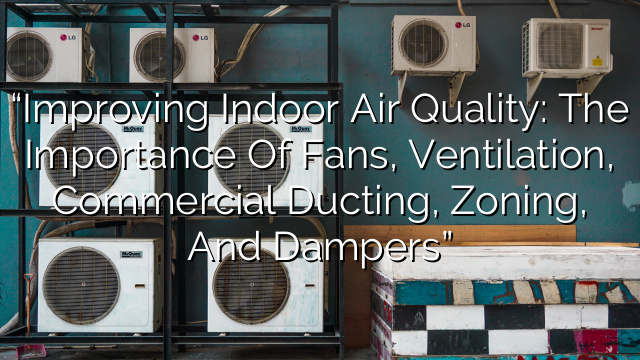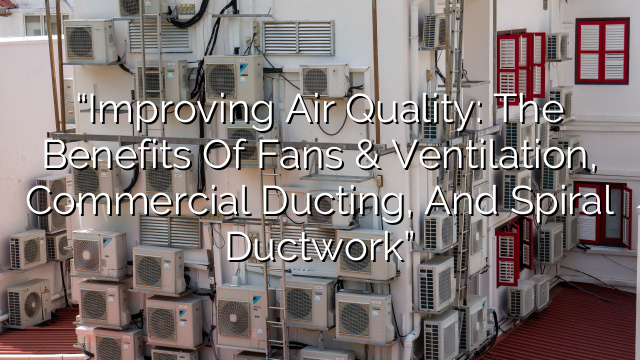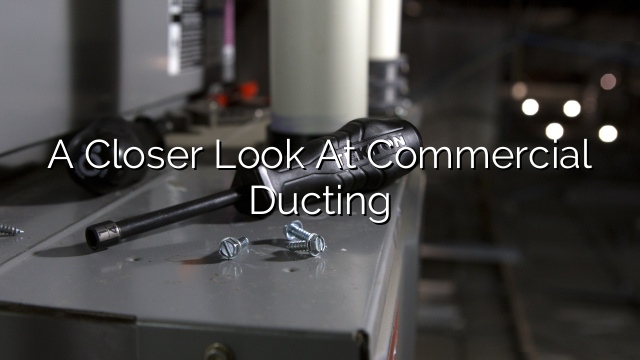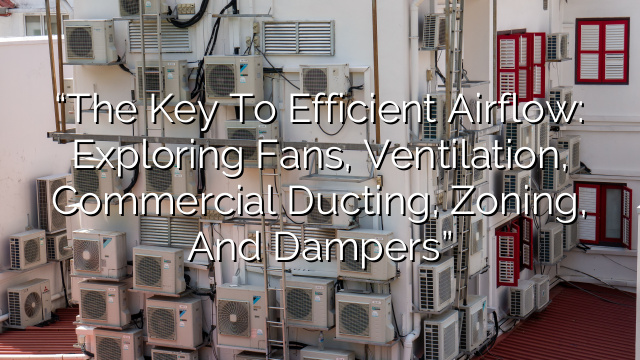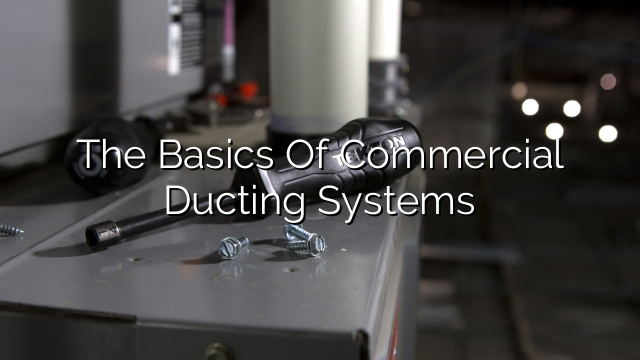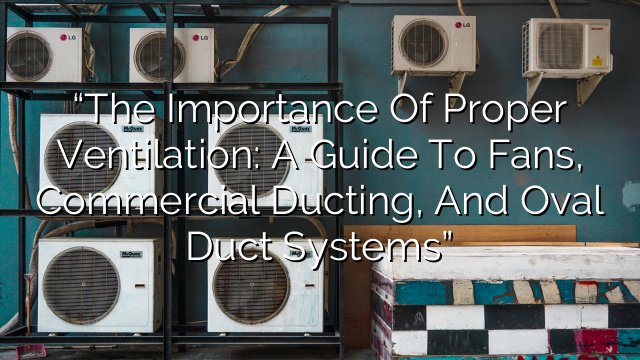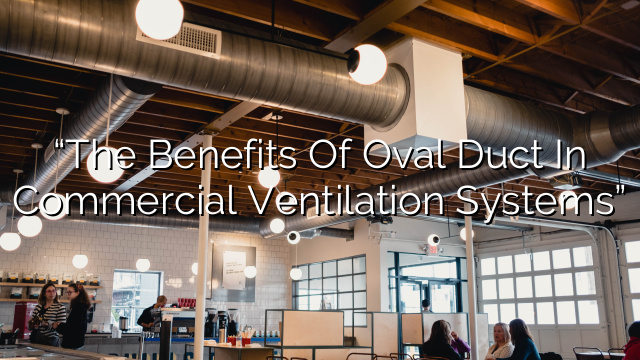Introduction
Proper ventilation is crucial for maintaining a comfortable and healthy indoor environment. Whether you are a homeowner or a business owner, understanding the importance of fans, commercial ducting, and flexible ductwork can help you ensure proper airflow in your space. In this guide, we will explore the benefits of proper ventilation and provide you with valuable information on fans, commercial ducting, and flexible ductwork.
The Benefits of Proper Ventilation
Proper ventilation offers a range of benefits, including:
- Improved Air Quality: Ventilation helps remove pollutants such as allergens, dust, and odors from the indoor air, improving the overall air quality and reducing the risk of respiratory problems.
- Temperature Control: Ventilation allows for the proper circulation of air, helping to maintain a comfortable temperature throughout the space. This is especially important in commercial settings where employees and customers need a comfortable environment for optimum productivity.
- Moisture Control: Effective ventilation can help reduce moisture accumulation, preventing the growth of mold and mildew that can be harmful to both the building and its occupants.
- Improved Energy Efficiency: Properly designed ventilation systems can help improve energy efficiency by reducing the need for excessive cooling and heating.
- Fire Safety: Proper ventilation is essential for fire safety as it helps remove smoke, toxic gases, and heat from the building, allowing for safe evacuation.
Fans
Fans are an essential component of any ventilation system. They help move air, promoting airflow and preventing the stagnation of indoor air. There are various types of fans available, including:
- Exhaust Fans: These fans are typically installed in bathrooms and kitchens to remove air and odors from the space. Exhaust fans are crucial for maintaining good indoor air quality and preventing the buildup of moisture.
- Inline Fans: Inline fans are installed within the ductwork and help move air efficiently through the ventilation system. These fans are ideal for commercial settings where long duct runs are common.
- Ceiling Fans: Ceiling fans are popular for their ability to circulate air, providing a cooling effect in the summer and helping with heating in the winter. They are commonly used in residential and commercial spaces.
- Wall-Mounted Fans: These fans are mounted on walls and are commonly used in small commercial spaces or for localized ventilation needs.
Commercial Ducting
Commercial ducting is a crucial component of any ventilation system in commercial settings. It refers to the network of ducts that distribute and exhaust air throughout the building. Commercial ducting comes in various shapes, sizes, and materials depending on the specific needs of the space. Some common types of commercial ducting include:
- Rectangular Ducts: These ducts are often used in commercial buildings and offer efficient airflow for large spaces.
- Spiral Ducts: Spiral ducts are commonly used in HVAC systems for their durability and ease of installation. They are often seen in retail stores and warehouses.
- Round Ducts: Round ducts are versatile and commonly used in commercial buildings. They offer good airflow and are relatively easy to install.
Flexible Ductwork
Flexible ductwork, also known as flex ducts, is a type of ducting that consists of a flexible inner core surrounded by insulation and an outer protective layer. It offers various benefits, including:
- Easy Installation: Flexible ductwork is easy to install, especially in tight spaces where rigid ducts may not be feasible.
- Energy Efficiency: The insulation in flexible ductwork helps reduce heat loss or gain, improving the overall energy efficiency of the ventilation system.
- Reduced Noise: The insulation in flexible ductwork helps absorb noise, making it a quieter option compared to rigid ducts.
- Versatility: Flexible ductwork can be easily bent and routed to fit different spaces and configurations.
FAQ
Here are some frequently asked questions about fans, commercial ducting, and flexible ductwork:
Q: How often should I clean my exhaust fan?
A: It is recommended to clean your exhaust fan at least once a year to keep it running efficiently and prevent the buildup of dust and debris.
Q: Can I use a residential fan for commercial purposes?
A: It is generally not recommended to use residential fans for commercial purposes as they may not have the capacity to handle the airflow requirements of a commercial space. It is best to consult with a professional to ensure you have the right type of fan for your specific needs.
Q: How long does flexible ductwork last?
A: The lifespan of flexible ductwork can vary depending on various factors, including the quality of the materials used and the installation. On average, flexible ductwork can last anywhere from 10 to 15 years.
Q: Can I install flexible ductwork myself?
A: While it is possible to install flexible ductwork on your own, it is recommended to hire a professional to ensure proper installation. Improper installation can lead to reduced airflow and energy efficiency.
Q: How do I know if my ventilation system is working properly?
A: Signs that your ventilation system may not be working properly include poor air quality, stale or musty odors, uneven temperatures, and excessive condensation or mold growth. If you notice any of these signs, it is best to consult with a professional to assess and address the issue.
Proper ventilation is essential for maintaining a healthy and comfortable indoor environment. By understanding the importance of fans, commercial ducting, and flexible ductwork, you can ensure proper airflow in your space. Whether you are a homeowner or a business owner, investing in a well-designed ventilation system can provide numerous benefits, from improved air quality to energy efficiency. Remember to consult with professionals for proper installation and maintenance to maximize the lifespan and performance of your ventilation system.


